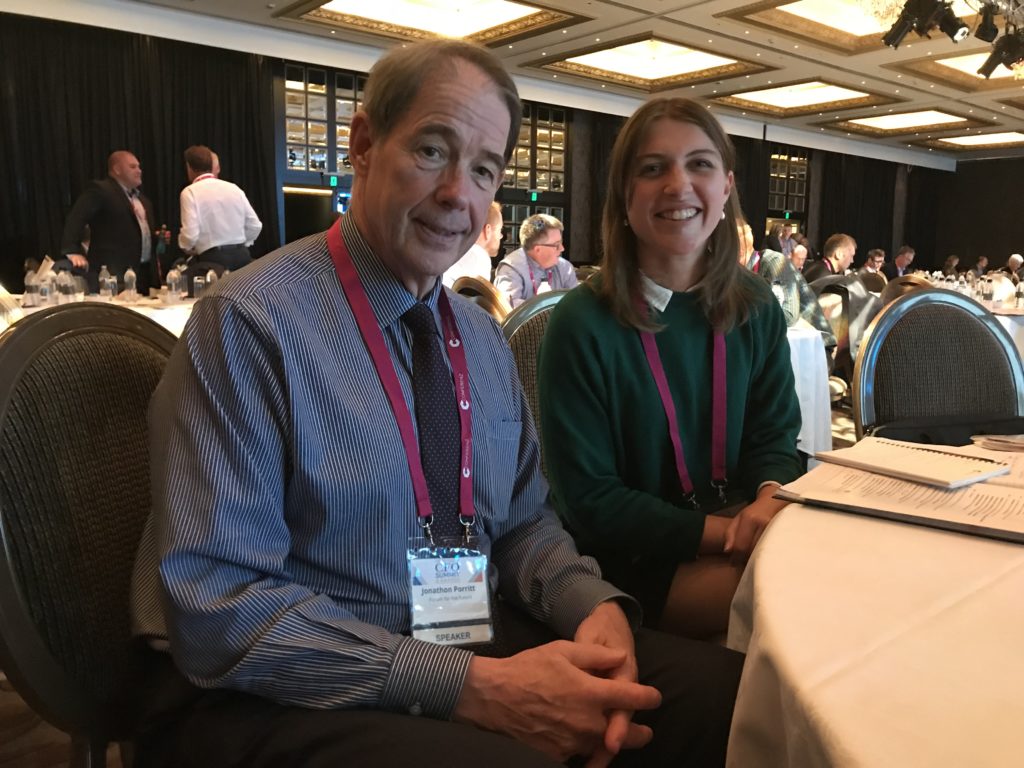Earlier this month the 2018 CFO Summit celebrated the hard work of New Zealand’s top Chief Financial Officers. Over the day a number of national and international speakers addressed 200 CFOs at the Cordis Hotel in Auckland to discuss the future of their role and the role of business in a rapidly changing national and global economy.
Wendy McGuinness was asked to speak on a panel alongside Erica Jenkin (Group GM Risk, SKYCITY Entertainment Group) and Sean Kam (CFO, Partners Life). Wendy discussed balancing risk frameworks with transformation and collaboration, and she shared the results from two surveys recently undertaken by the Institute (in collaboration with XRB) looking at the attitudes of Preparers (CFOs) and Users (interested parties) of Extended External Reporting (EER).
International keynote speaker Jonathon Porritt, founding director of UK-based Forum for the Future, discussed the need to move non-financial performance measures up the corporate agenda. His presentation shed light on the importance of reporting on environmental, social and governance risks and designing strategic initiatives to engage in sustainability efforts to combat these risks and create long-term value. We were lucky enough to be able to interview Jonathon following his presentation. Below are the five keys points that came from our conversation.
Jonathon set up the Forum For the Future in 1996 after attending the 1992 Earth Summit where he noticed, for the first time ever, concern over how companies account for what they are doing in terms of corporate sustainability. He believed that guilt, fear and anger were not efficient narratives to encourage companies to report on their ESG strategies and risks. Instead, he notes that:
- Integrating sustainability into business practice is not a one size fits all template. However, three preconditions form the foundation of corporate responsibility: effective leadership (from the company CEO or Chair); distributed leadership (different parts of the organisation owning different roles); and employee engagement (sharing in a sense of purpose).
- We are living in an era of ideological deregulation. The current generation of CFOs have been brought up against an anti-regulation backdrop. Yet business depends on good patterns of regulation and regulation would secure the foundation of good social engagement and social responsibility.
- It is not difficult to see the long-term value that social responsibility offers. Risk management often gets somewhat formulaic, but presenting corporate sustainability as an opportunity story encourages more businesses to get involved.
- Government needs to be more involved in regulations to reduce the externalisation of costs such as climate change by companies more quickly, as opposed to letting them get away with ‘legal externalisation’. Jonathon gives the example of forestry companies legally ‘trashing’ their natural assets by logging an area ‘fast and furiously without any concern for the run-off saltation [or] the degree to which waterways will get severely polluted by this, there is nothing to stop them’.
- The ‘notion of a company having a societal purpose over and above the need to make money for shareholders is absolutely fundamental these days’. The business case for better corporate responsibility reporting goes beyond simply saving money and being ‘eco-efficient’, and instead is demonstrated by the company accruing tangible value over time (e.g. reputational), as well as enjoying intangible benefits such as being able to ‘recruit and retain talent’.

